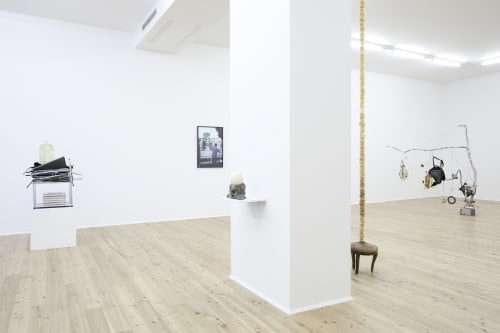The concept of the show is inspired by Ted Botha’s book “Mongo”, a slang word which indicates waste materials collected, recovered and reuse by a lot of people around the world. The myriad of reasons for collecting rubbish draw upon the most basic of human desires: some people collect for fun, others to make a living, some to find friends, others to snoop, some to make a political statement, others because it is an addiction. Even artists have start creating something beautiful from mongo. The show is, in fact, about beautiful rubbish, something that has value just because it has no value at all, something that has been dismissed and tossed out, discarded and then saved, reused. These two different approaches aim for the same goal: to appreciate something useless, problematic to the public’s purview, and transform it into an object of value. This assertion is inherently mystical and shakes the very foundation of societal beliefs concerning worth.
All of the artists in this show are attracted to the idea that something considered by our society as negative, is actually the sacred heart where beauty is preserved.
Mongo: Adventures in Trash Mongo, according to the Cassell Dictionary of Slang, is New York lingo for any discarded object that is retrieved. When Ted moved to Manhattan from South Africa, where people constructed homes out of what others considered trash, he decorated his apartment with furniture he found on the streets. Soon he realized he wasn't the only person finding things of value in the garbage, and he began roaming the streets meeting all kinds of collectors, united by their obsession with mongo.
This book is a record of his travels among the collectors, who are as varied as the kind of mongo they seek. They range from housewife to homeless man, from accountant to computer consultant; from retrenched bank worker to full-time collector. One man finds jewellery in the sludge of New York's sewers; another has built one of the most extensive rare book collections in the city. The myriad reasons for collecting open a window into the range of human desires: some people collect for fun, others to make a living; some to find friends, others to snoop; some to make a political statement, others because it is an addiction.
Artists: David Adamo, Agathe Snow, Brendan Fowler, Gabriele Picco, Mike Bouchet and Alexandra Bircken.
